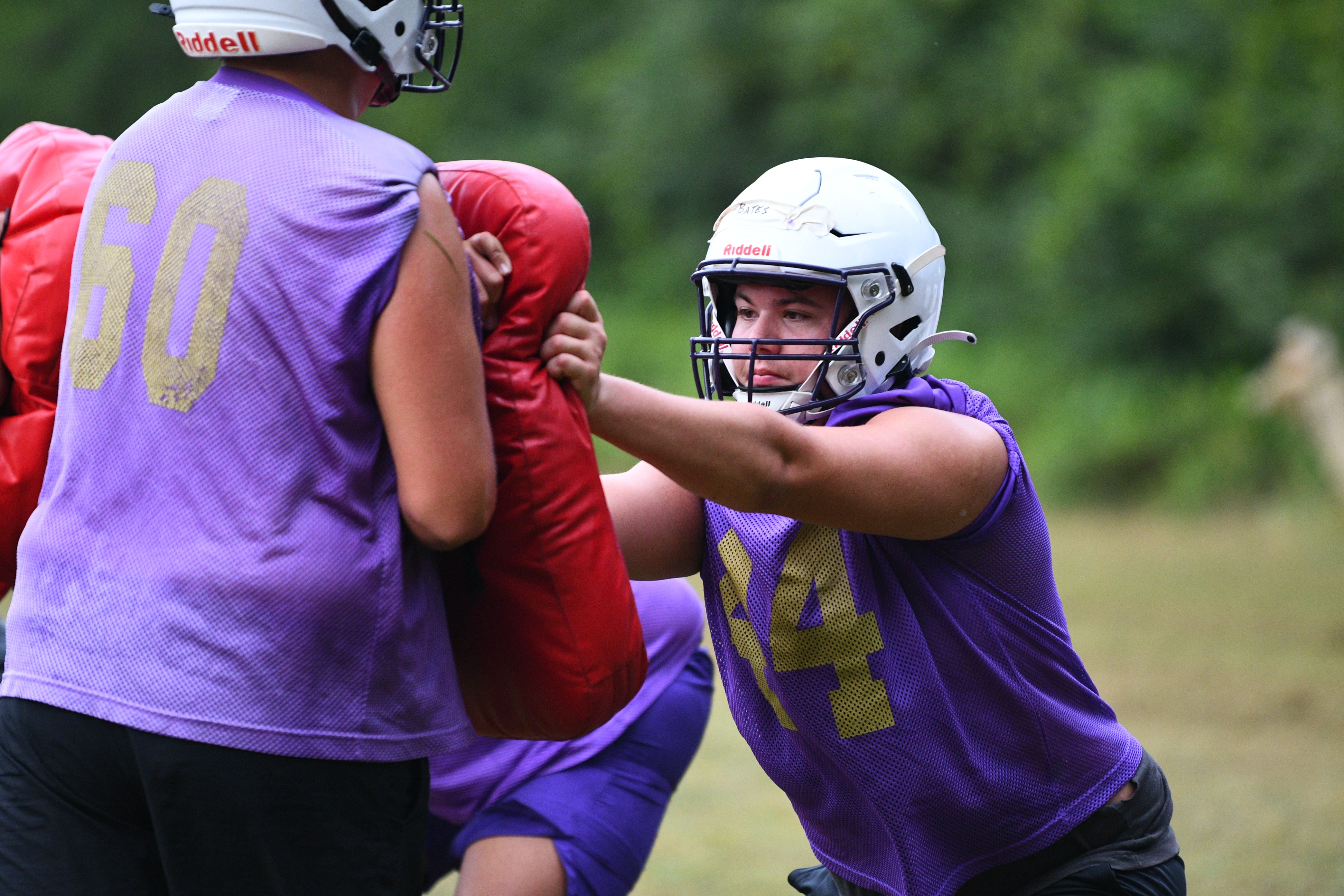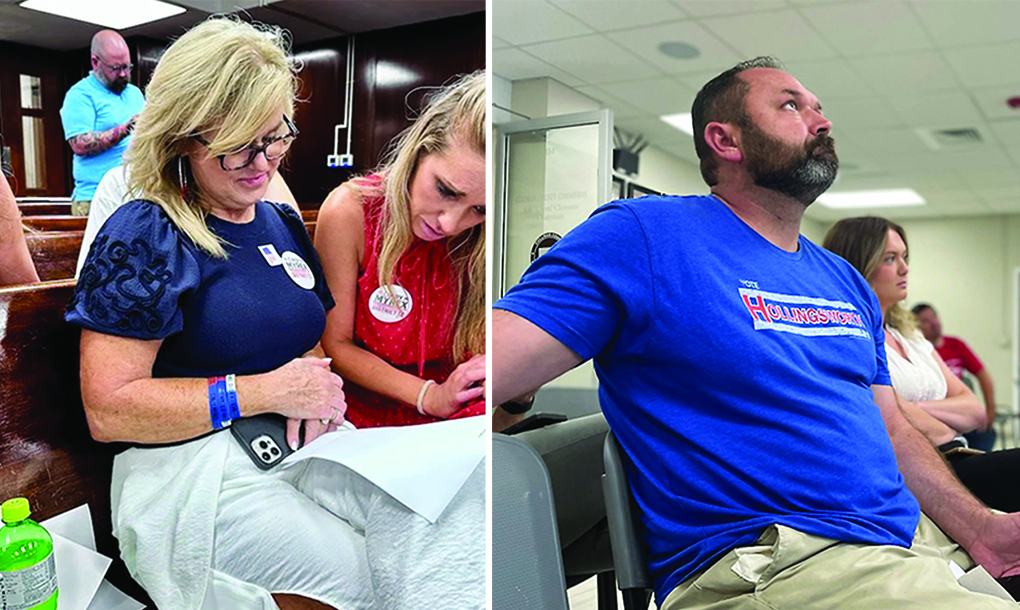Oklahoma school district’s cell phone policy draws ire from parents, critics
Published 11:35 am Monday, October 17, 2016

- Sophomore Miguel Landaverde and Hulbert High School Principal Rusty Harris demonstrated on Wednesday afternoon how the new cell phone policy will be applied.
HULBERT, Okla. — A school district’s new cell phone policy is stirring up controversy within an eastern Oklahoma community, even before it takes effect next month.
As of Nov. 1, students in Hulbert, Oklahoma, Public Schools will have three options for what they can do with their cellular devices: They can either leave them in their vehicles, turn them into the school office before first hour or give them to their seventh-hour teachers. Students who violate the policy will first receive two days’ detention, then three days of in-school-suspension followed by three days of out-of-school suspension. For a fourth offense, punishment will be at the discretion of the school’s principal. Exceptions to the policy must be approved by the school’s principal.
Trending
The change has prompted pushback from some in the community, while others seem to be on board with the policy. Safety issues lead the talks of concerns, while those who support the idea worry mostly about the distraction the phones cause.
Across the country, the subject of allowing students to bring their cell phones into schools and classrooms has spawned a number of conversations around everything from social media usage and technological distractions to the benefits of having children connected to their families in case of emergency. A June article published by the National Education Association calls mobile devices in classrooms the “new chewing gum”, citing them as a “nuisance more than an offense and one very difficult to enforce.” With an estimated 88 percent of American teens age 13 to 17 having access to some sort of mobile phone, according to Pew, enforcing any sort of modern student cell phone policy will have its challenges.
Hulbert High School Principal Rusty Harris has been one of the main proponents of the change, which was recently approved by the school board. He said probably 90 percent of discipline issues he deals lead, in one way or another, back to a cell phone. Harris said he wants the community and parents to understand the point of the policy is not to be punitive, but to help drive instruction and maximize those academic minutes.
“This is my third year here, and I think the parents I’ve had the opportunity to spend some time with know my heart,” Harris said. “My heart isn’t to take something away. Sometimes as an adult, even with my own children, my wife and I have made some decisions we felt in our heart would benefit them in the future and better prepare them. Even at the time, when they didn’t understand it, you’d hope there was a trust that you’re not doing something to them, but for them.”
Harris doesn’t think parents will see an effect on their ability to contact their children, but believes discipline problems will decrease at the school. He said the policy will also help curb distraction from instructional time — something teachers can’t afford to sacrifice.
“The reality of it is, if the phone is not being used for an academic purpose, it’s a distraction,” Harris said. “With that in mind, with the new Oklahoma academic standards and a new round of testing that we’re a little unsure of, teachers are held accountable for those. That distraction really bothers them because they feel like they are losing instructional time, and their job is dependent on how well they score.”
Trending
HPS staff and a few community members expressed concern with the policy, but none chose to go on record to with their opinions. However, in a Tahlequah, Oklahoma Daily Press Facebook post about the change, comments showed both support for and opposition to the policy.
Sheilah Guthrie said she didn’t like the change, and added that if something similar were to happen in her district, she’d have her child put his phone in the backpack, anyway.
“Twice my daughter has texted me during a scary situation at school,” Guthrie said. “I was and am thankful she had her cell phone. My child does pay attention; her grades reflect it. She does her homework and studies as she should. I never have to remind her. She is responsible and behaves accordingly with her phone, so maybe disciplining the offenders is a better solution.”
Despite some public backlash, there are those who favor the change. Many who approve of it mentioned the distraction phones cause, and pointed out youngsters got by fine before they were readily available.
Lisa Gregoire said she’s a fan of the policy.
“Kids nowadays don’t pay attention because they are always on their phones,” Gregoire said. “Leave the phone [at] home; no need for one in school.”
Lane writes for the Tahlequah, Oklahoma Daily Press.






